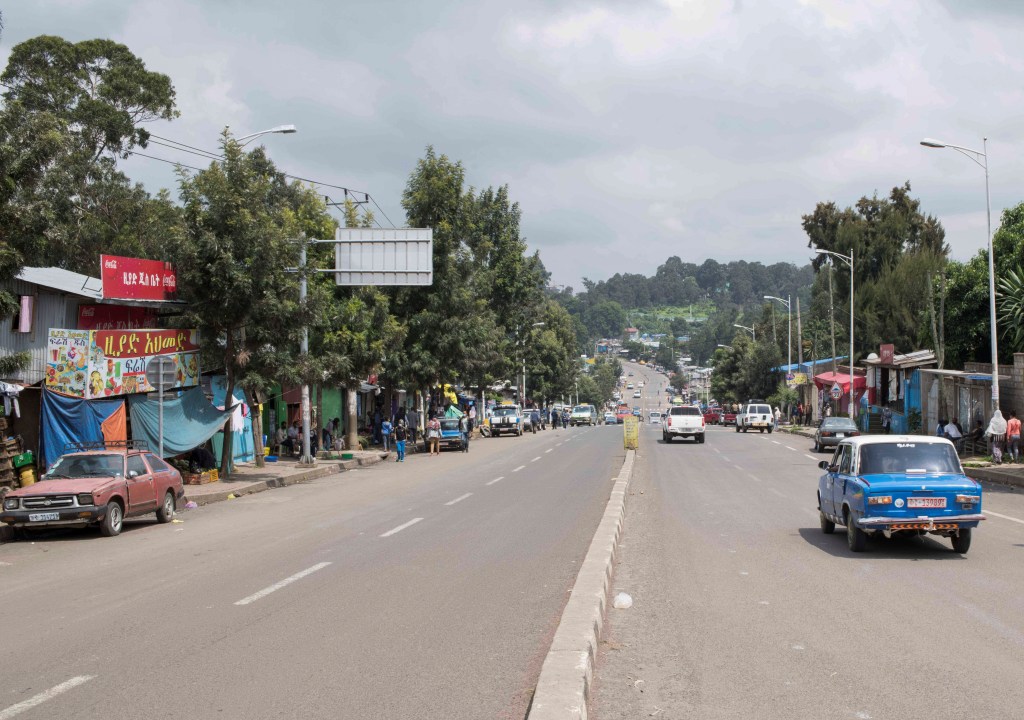On August 5 and 6, 2020, security personnel in Ethiopia arrested three current and one former employee of the privately-owned Amhara Satellite Radio And Television (ASRAT), according to an August 10 statement from the media outlet on Facebook and the four individuals’ lawyer, Henok Aklilu, who spoke with CPJ via phone. Journalists Belay Manaye and Mulugeta Anberbir, cameraperson Mesganawe Kefleng, and former employee Yonatan Mulugeta are being held on allegations that they incited violence but have not been formally charged, according to the sources.
The four appeared at the Federal First Instance Court in Addis Ababa on August 7, according to ASRAT’s statement. Henok told CPJ that police accused the journalists of inciting violence by producing reports showing the Amhara people, Ethiopia’s second-largest ethnic group, as oppressed and characterizing the Ethiopian government as incapable of protecting the Amhara people. He said police said the reporting was aired between November 22, 2019 and June 2020, though did not point to specific reports or the role of each accused individual in the reporting.
Teferi Admasu, the U.S.-based deputy chairperson of ASRAT’s executive board, told CPJ that Belay, a reporter, and Mulugeta, a current affairs show host, were arrested at Belay’s house on August 5. The next day, he said, Misgana and Yonatan, who worked as an ASRAT cameraman between August and November 2019, were arrested from their respective homes. Henok said that police did not show arrest warrants when they took the journalists and media workers into custody, in violation of their rights, according to Ethiopia’s constitution.
About a month before the arrests, on July 3, the office of the federal attorney general singled out ASRAT and two other media organizations, the Oromia Media Network and Dimitsi Woyane, a media outlet associated with the ruling party in the State of Tigray in a press statement aired on state media, according to The Reporter newspaper. The office alleged that the three outlets were fomenting conflict among different ethnic communities, and said it would be investigating their reporting, according to The Reporter. The announcement came in the wake of the June 29 killing of the popular political musician Hachalu Hundessa, which sparked violence, according to news reports.
Teferi told CPJ that ASRAT was not broadcasting before and in the immediate aftermath of Hachalu’s murder, as the station was off air between June 24 and July 18 while it was between contracts with a satellite provider. On June 25, the station posted about the pause in operations on its Facebook page.
After the attorney general’s office announced its investigation into ASRAT and the other outlets, CPJ contacted various authorities for comment via email and later received a response from Yibekal Gizaw, the head of the office of the National Human Rights Action Plan, a department within the attorney general’s office. In Yibekal’s July 24 email, he confirmed that ASRAT was under investigation, but told CPJ that unlike the investigations into the other outlets, this one had nothing to do with the allegation that the news organization incited violence but was in regard to ASRAT’s registration status.
After the arrest of the four ASRAT journalists and media workers, CPJ contacted the attorney general’s office on August 12 for comment but has not received a reply. CPJ also contacted federal police spokesman Jeylan Abdi via email and phone. In a phone call on August 14, Jeylan said he had no comment on the ASRAT cases and told CPJ to call prosecutors for information.
During the journalists and media workers’ court appearance on August 7, Belay, who suffers from asthma, raised concerns that the four were detained in crowded conditions at the Addis Ababa Police Commission, known as Sostegna, risking infection of COVID-19, according to Henok and ASRAT’s statement. The court granted police 13 more days for further investigation; the defendants’ next scheduled appearance is on August 19, according to Henok. Meanwhile, ASRAT released a statement via Facebook on August 13 indicating additional concern about COVID-19, as the detainees, it said, have been moved to a cramped cell with other people.
This is not the first time that employees of ASRAT have been detained. In June 2019 two media workers from the station were arrested and held for several weeks without charge, as CPJ documented at the time.
At least four other journalists and one media worker, four of whom are employees of the Oromia Media Network, have been detained in Ethiopia since early July, as CPJ documented. One of these other journalists, Kenyan freelancer Yassin Juma, has tested positive for COVID-19, according to his lawyer, Tuli Bayyisa, who spoke to CPJ via messaging app. Tuli told CPJ he believes the journalist contracted the virus in detention.
Editor’s note: This article was updated to correct the spelling of journalist Mesganawe Kefleng’s name.
